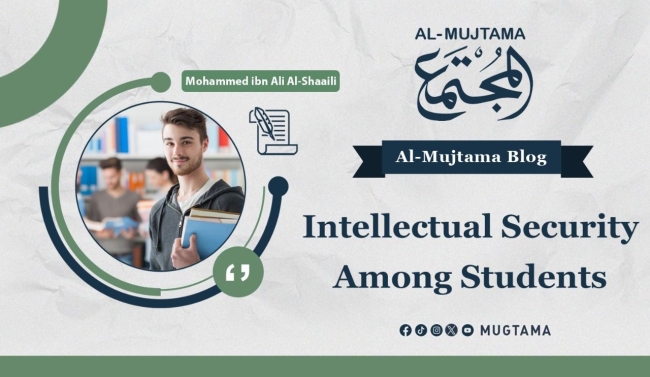Intellectual Security Among Students Featured
We are in urgent need today to safeguard minds from misleading ideas and intellectual extremism within all sectors of society, especially among youth. Undoubtedly, the most important group within this youth category is school and university students.
What is intellectual security?
There are several definitions for intellectual security, derived from the two words "security" and "thought." In brief, we can define intellectual security as the soundness of a person’s thoughts, mind, and understanding, free from deviation and moving away from moderation. It is about having balanced and moderate views on religious, political, and cosmic matters, which prevent one from falling into extremism or rigid dogmatism, or from drifting towards atheism and complete secularism.
Why do we need intellectual security for students?
In this era of information explosion and digital revolution, false sciences, misleading ideas, and fake news are widespread. Students become easy targets for intellectual misguidance and deviation. Therefore, protecting students' thinking and shielding them from anything harmful to their mindset is a fundamental aspect of the educational process.
Given that education today moves rapidly from one stage to another, in this age of information explosion, establishing a protective barrier for school and university students to secure their intellectual safety has become a vital necessity for continued stability and security. This is essential to achieve a sense of calm in society, so that these students can contribute to nation-building and human welfare in the best manner, in a way that aligns with religious principles and sound ethics, helping preserve the human self, guiding student behavior, and affirming loyalty to both religion and country.
Responsibility for students' intellectual security
Ensuring intellectual security for students is a collective and participatory responsibility within society, with every institution having its role. Among these institutions, schools and universities are the most significant. Additionally, we must not overlook the crucial role of the family, which plays a significant part in fostering intellectual security in students by establishing effective communication strategies with their children. Schools and universities contribute most significantly to intellectual security through cooperation and solidarity, promoting religious and intellectual awareness, fostering citizenship among students, and channeling their energies into various activities that benefit both them and their countries. This approach helps society remain cohesive, united, and exemplary in harmony and contribution, achieving national unity and rejecting all forms of intellectual deviation.
-------------------------------------------------------------
- Learning Resources Specialist - Oman


